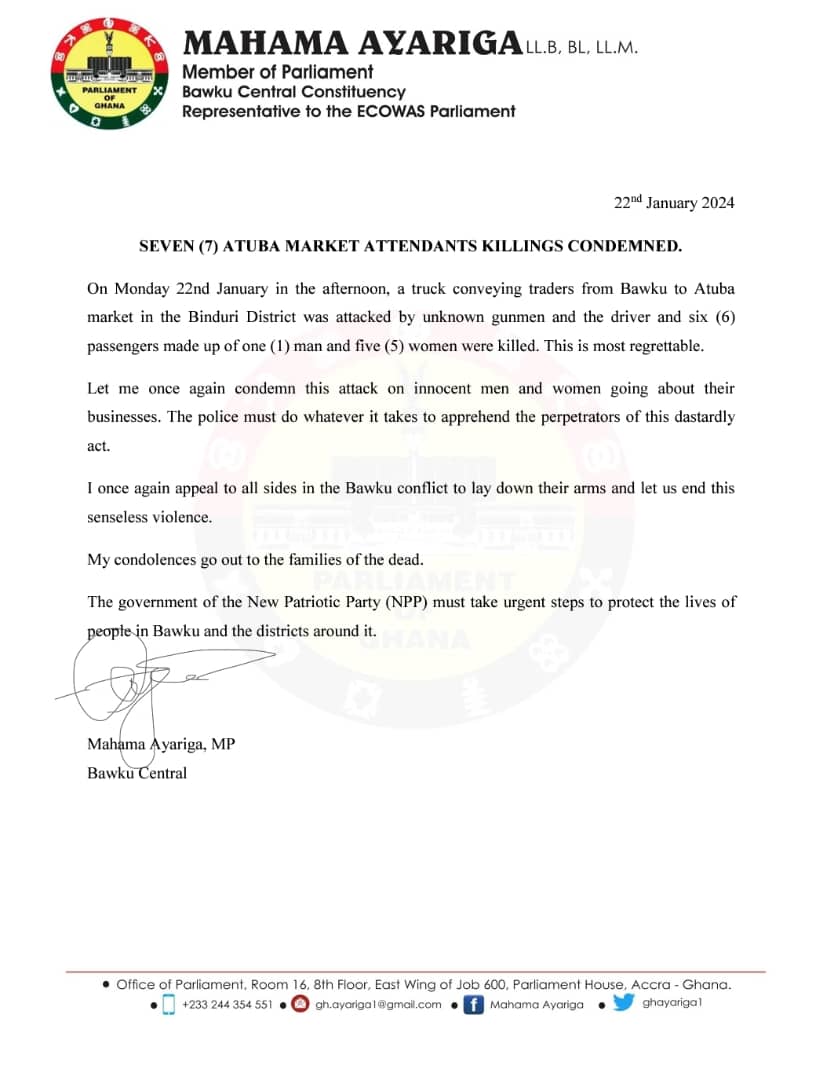
By Amos SAFO
Once more our beloved country is in the middle of a crucial election, in which the electorate will elect a president and members of parliament to steer the affairs of the country for another four years. My emphasis is on ‘four years’, because the 1992 Constitution does not state that power should automatically revert to the next biggest opposition party.
Only through an election every four years will power change hands. In that regard the Electoral Commission has the mandate to compile a register and conduct elections every four years, not every eight years.
I have evaluated the manifestoes of both the ruling New Patriotic Party (NPP) and the opposition National Democratic Congress (NDC) and noticed that there are more similarities than there are differences. As to which party plagiarized from the other is not for me to conclude.
So, if indeed the manifestoes of NPP and NDC are viable alternatives, I challenge both parties to spend time marketing the manifestoes to the electorate, who have the constitutional mandate to elect a president.
Elections are about productive ideas and policy alternatives to convince the electorate to make a choice. Therefore, resorting to counter-productive street demonstrations and threats of violence purportedly to intimidate the electorate to vote in a certain direction should not be countenanced in Ghana.
In fact, much as demonstrations are a constitutional right, electoral violence is a less celebrated means of regime change all over the world. That is why Mr. William Ruto, the beleaguered Kenyan President is still in office despite suffering the lowest popularity rating of any Kenyan President since independence. The Gen Z’s and the electorate can only kick him out during the next elections.
Attacks of EC
I have followed with keen interest the farcical feud between the National Democratic Congress (NDC) and Electoral Commission of Ghana over the voters’ register. The NDC is advocating for a forensic audit of the electoral roll ahead of the December 7 elections. Their demand raises concerns about the credibility of the voters’ register.
However, rather than providing evidence to solicit public support, the party’s leadership directed their supporters to the streets. Some political analysts argue that the NDC is preparing its supporters to resort to violence if the presidential results do not favour the party.
The Electoral Commission is a constitutional body with the mandate to organize elections. It operates through constitutional instruments, which are passed by Parliament. Therefore, no political party can use street protests to compel the EC to do its bidding. At best the Inter-party consultative meetings constitute a forum for all electoral grievances to be addressed.
Another option is for an aggrieved party to seek legal redress at the courts. The judiciary is the final arbiter in all election petitions, and not street demonstrations. What NDC should have done, as they did in 2020 was to go to court and provide evidence that the Electoral Commission has stuffed the register with 200, 000 voters.
The EC has challenged it to provide evidence on the 200,000 illegal names on the electoral roll to enable it to respond. Rather, it organized protests across the country to raise unnecessary tension. One basic function of every political party is to help the EC to organize elections fairly and peacefully, not to threaten it with violence.
GBA expresses concern
On that score, the Ghana Bar Association has expressed concern about the escalating tension ahead of the 2024 election. During its recent congress in Kumasi, GBA appealed to all Ghanaians not to take the prevailing peace for granted.
The Association reminded Ghanaians of the collective responsibility to ensure that our words and deeds uphold human dignity and should not create fertile conditions for any interest groups to distabilise the country. Furthermore, the GBA appealed to the political parties and other stakeholders to seek political engagement at all levels of the political divide.
Specifically, the GBA admonished the youth not to allow themselves to be exploited by politicians for their political ends. It stated that the youth are much more than a few cedis, alcohol and few balls of kenkey as incentives for violent conduct.
In my opinion, while the stakes are high between the two political parties, the country cannot afford to be disintegrated because of the unending desire by some political power seekers. Vigilantism and lawlessness should not be countenanced for political power and our common desire to consolidate our democratic gains.
Stirring ethnic hatred
Against this backdrop Afua Pokua’s attacks on the Asantehene, Otumfou Osei Tutu II, the occupant of the Golden Stool are deplorable and vicious. During a morning programme on Onua TV, owned by Media General, Afua Pokua launched a frontal attack on the Asantehene and by extension all Ashantis for receiving the attention they do not deserve.
Furthermore, she derided the historical antecedents of the Ashantis as warriors, who defeated the British army in one of several wars against the colonizers. With a tinge of anger in her voice and face, she described the Asantehene as an ordinary chief, who does not deserve the accolade as king.
She decried the practice of political leaders, diplomats and business executives visiting and paying homage to only the Asantehene. In fact, derogatory and inflammable words of that nature should not have emerged from the mouth of a lady. The rest of her irresponsible and reprehensible comments cannot be put in print for the sake of upholding journalism and media ethics.
Social media effects
Recently, Onua TV has gained notoriety for promoting political and ethnic hatred in Ghana. Captain Smart is on record to have used the power of his consul on Onua TV to pledge his support for a military takeover. His venomous political and ethnic attacks on perceived enemies compelled the National Media Commission to complain about his unethical conduct to the owners of Onua TV.
The former Minister of Finance, Mr. Ken Ofori-Attah had no option than to sue him for defamation. He also uses social media to publish his outbursts perhaps, for maximum effect. Like Captain Smart, Afua Pokua’s uncultured utterances against the Asantehene and his kingdom were also shared on various social media platforms, also for maximum effect. This suggests that social media is becoming a powerful alternative or complement to mainstream media, especially television.
As was expected, her insults went viral and drew the effect she expected, judging from the angry backlash from Ghanaians within and across the world. Surprisingly, the host of the programme, popularly called Mona Gucci failed to exercise he gatekeeping role.
She looked on admiringly, as her panelist spewed what can easily pass as the most reckless comments against an eminent personality in recent memory. The misconduct of both the host and her panelist raises legitimate questions about the disregard for media ethics and the professionalization of journalism in Ghana.
I wonder if Onua TV has any gatekeeping processes to check such inflammatory and ethnocentric utterances. I have heard some people suggesting that Afua merely expressed her feelings and did nothing wrong. I beg to differ. The words she uttered were premeditated and calculated to promote ethnic hatred in Ghana, especially against the Ashantis.
In fact, Afua stretched freedom of expression to the breaking point. Thus, the freedom television and social media offer for dialogic communication should not be sacrificed on the altar of freedom of expression and freedom of the media.
Political agenda
In fact, I am one of several people to conclude that Afua Pokua’s tantrums were no mere coincidence, coming on the heels of the protest against the Electoral Commission and barely two months to the election.
I strongly believe that Afua Pokua’s insults were carefully orchestrated to trigger simultaneous insults by social media terrorists likes Twene Jonas, Kevin Taylor, Ohene David (probably not his real name) and Manu Keka Nkwasiasem”, among others. Twene Jonas even boasted that he is the most powerful person in Ghana because his social media handle has mass following than many people could imagine.
The collective venom these young men poured on the Asantehene, and his chiefs is not only insane, but it also signals how fast our country is descending into the abyss. The timing of their attacks, a few minutes after Afua’s bombshell attests to my conclusion that some politicians are the brains behind the ethnocentric agenda against the Ashantis.
When one of them linked their insults of Asantehene to the so-called marginalization of the Dormahene, Agyeman Badu, it dawned on me that the attacks on the Asantehene had political undertones.
The words these young men individually and collectively unleashed on the Asantehene, and the Asante people cannot be repeated here for the sake of upholding media ethics. I suggest to readers to watch the videos on Tik Tok, Facebook Reels and You Tube and draw their own conclusions. In fact, this country has no future, if this is the mindset of our future leaders.
Disturbing trends
The most disturbing trend in contemporary communications is the increasing use of social media to undermine our cultural, religious and social values. What is unfolding on the digital space justifies the prediction that social media, citizen journalists and bloggers could become the springboard for ethnic violence in Ghana. Social media is gradually expanding the boundaries of media ethics for the worse.
The verbal terrorism being churned out on social media by the youth should be a source of worry to all well-meaning Ghanaians. The questions I ask is, who is mentoring these errant and uncultured youth? Who are their parents? Who are their relatives? Who are their religious leaders? Who are their church members? Who were their school mates.
Regulatory framework
In the wake of the venom that is unfolding on television and social media, the National Media Commission, the National Communications Authority, Cyber Security Authority and Parliament of Ghana need to be thinking about new regulatory frameworks to reflect the changes occurring on the new media. Unfortunately, these social media bullies are operating beyond the borders of Ghana, hence making social media very difficult to regulate.
Elsewhere, in Asia, Europe and America, the content of social media is regulated. The United States of America and the United Kingdom have laws and mechanisms that restrict hate speech and cyber bullying online. In China where Tik Tok originates, they use it to empower the youth with technical and vocational skills.
Thus, the content that Tik Tok provides to Chinese viewers is totally different from the content we watch in Ghana and Africa. While our content is mostly comedy, hate speech, nudity and ethnocentric insults, Chinese viewers benefit from the productive and emancipatory power of social media.
This means that countries can tailor social media content to their needs. In all, the freedom that comes with new media, blogging and citizen journalism needs to be checked. There is no unlimited freedom anywhere, even in the most advanced democracies. It is time social media activists, citizen journalists and bloggers are made to account for the actions on social media.
The post Campaign on manifestoes, not violence and ethnicity appeared first on The Business & Financial Times.
Read Full Story
















Facebook
Twitter
Pinterest
Instagram
Google+
YouTube
LinkedIn
RSS